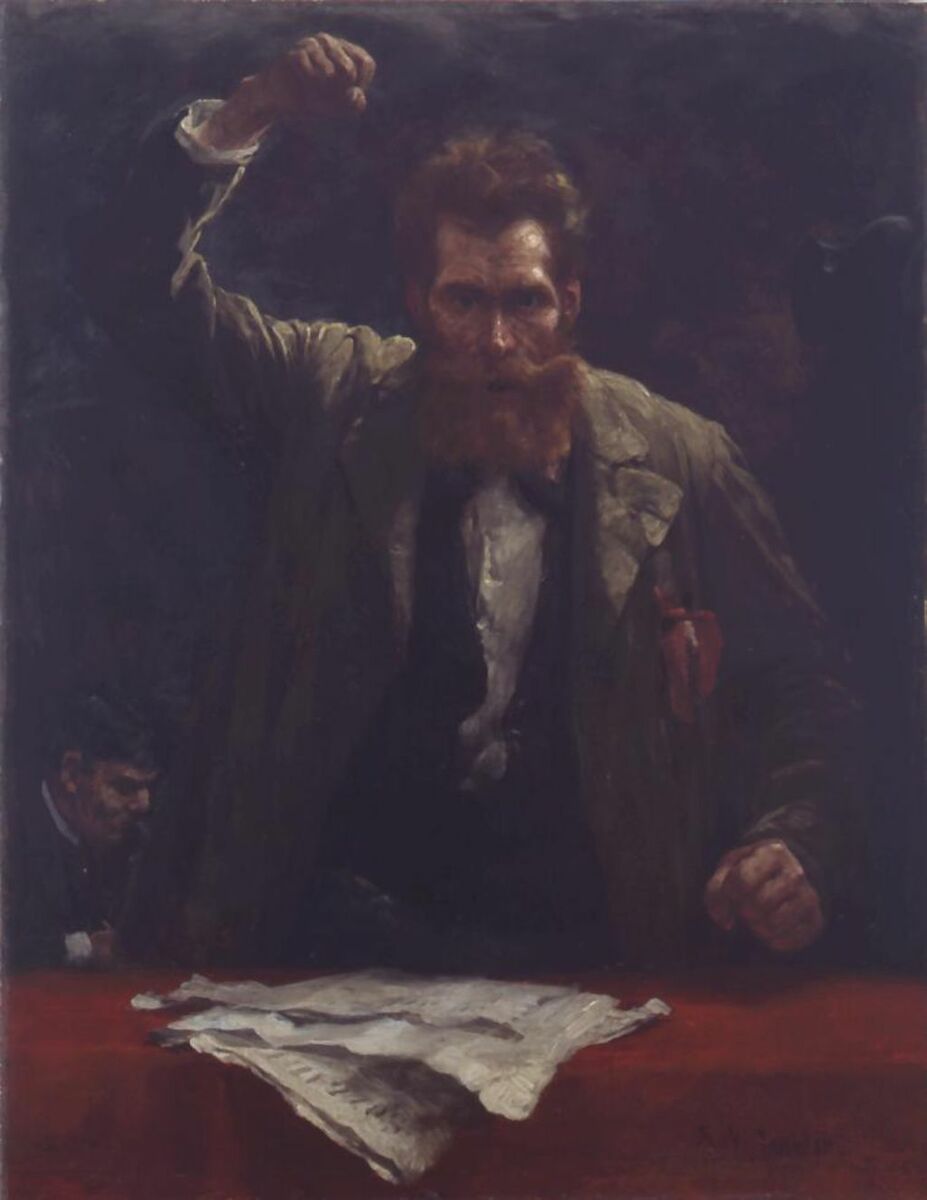Source

Source: Robert Koehler, Der Sozialist [The Socialist]. Painting/oil on wood (1885). Original: Deutsches Historisches Museum, Berlin, Inv.-Nr.: 1989/1144.
This is said to be the first portrait of a working-class political agitator. The aggressive posture and evident vehemence of this Social Democratic orator are highlighted by the red tablecloth at the bottom of the painting and the handkerchief of the same color tucked into the speaker’s vest pocket. This painting by Robert Koehler (1850–1917) also illustrates the international reach of the Social Democratic movement in the 1880s. Born to German parents in Hamburg, Koehler moved from Germany to the U.S. as a child; the family settled in Milwaukee, one of the preferred destinations for German immigrants. Koehler studied art—specifically lithography—in Pittsburgh and New York, and then attended the Art Academy in Munich. The scene depicted here might plausibly have taken place in either Germany or America. During the period of the Anti-Socialist Law (1878–1890), when SPD associations, publications, and meetings were outlawed in Germany, prominent party leaders traveled to the U.S. and addressed large crowds in New York, Boston, Philadelphia, and Chicago. This painting was exhibited in 1885 at the National Academy of Design in New York under the revealing title, A German Socialist Propounding His Bloodthirsty Ideas. Another painting by Koehler, Der Streik [The Strike] (1886), reflects quite a different side of the struggle for working-class rights.

Source: Robert Koehler, Der Sozialist [The Socialist]. Painting/oil on wood (1885). Original: Deutsches Historisches Museum, Berlin, Inv.-Nr.: 1989/1144.
© Deutsches Historisches Museum, Berlin